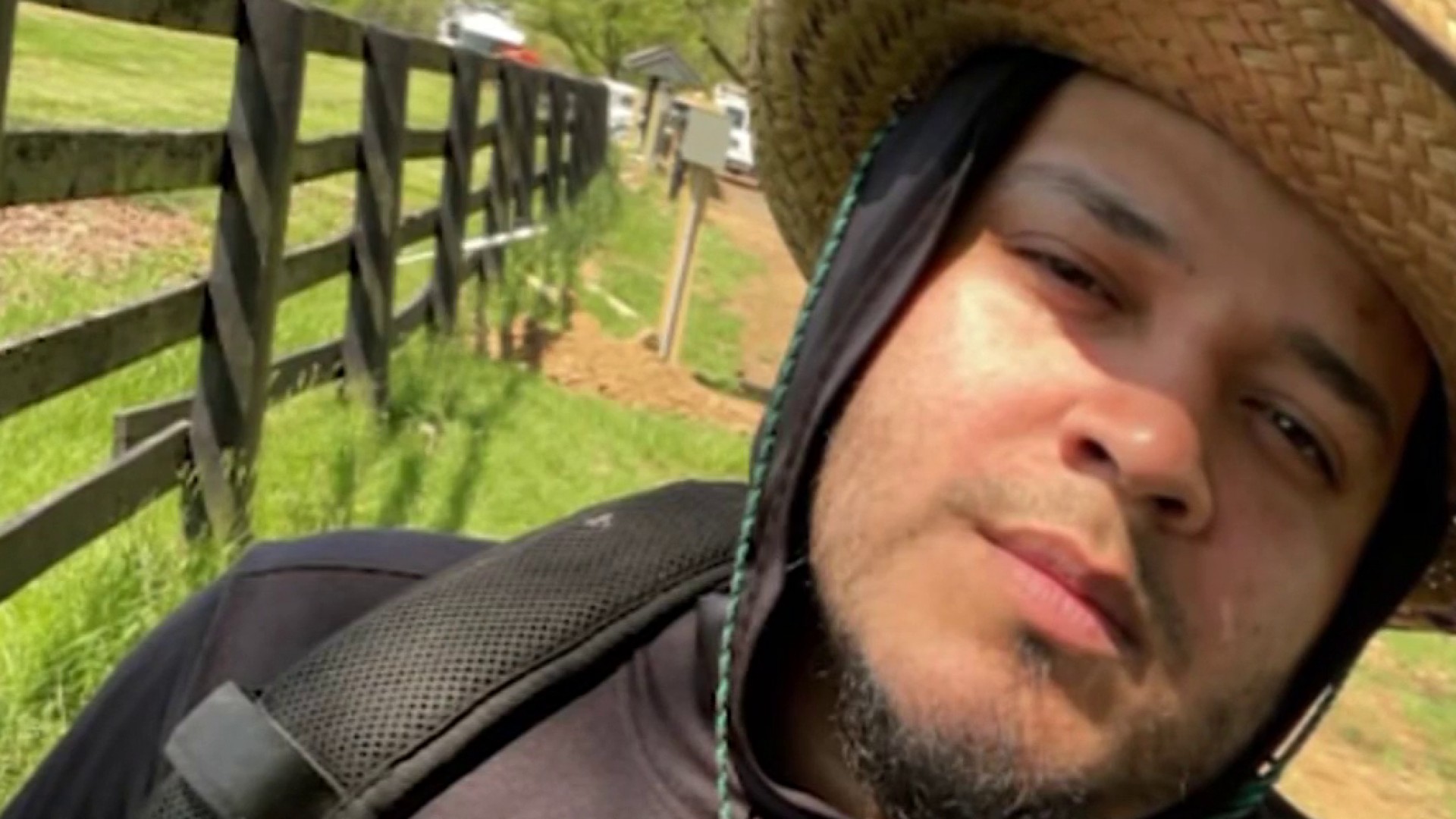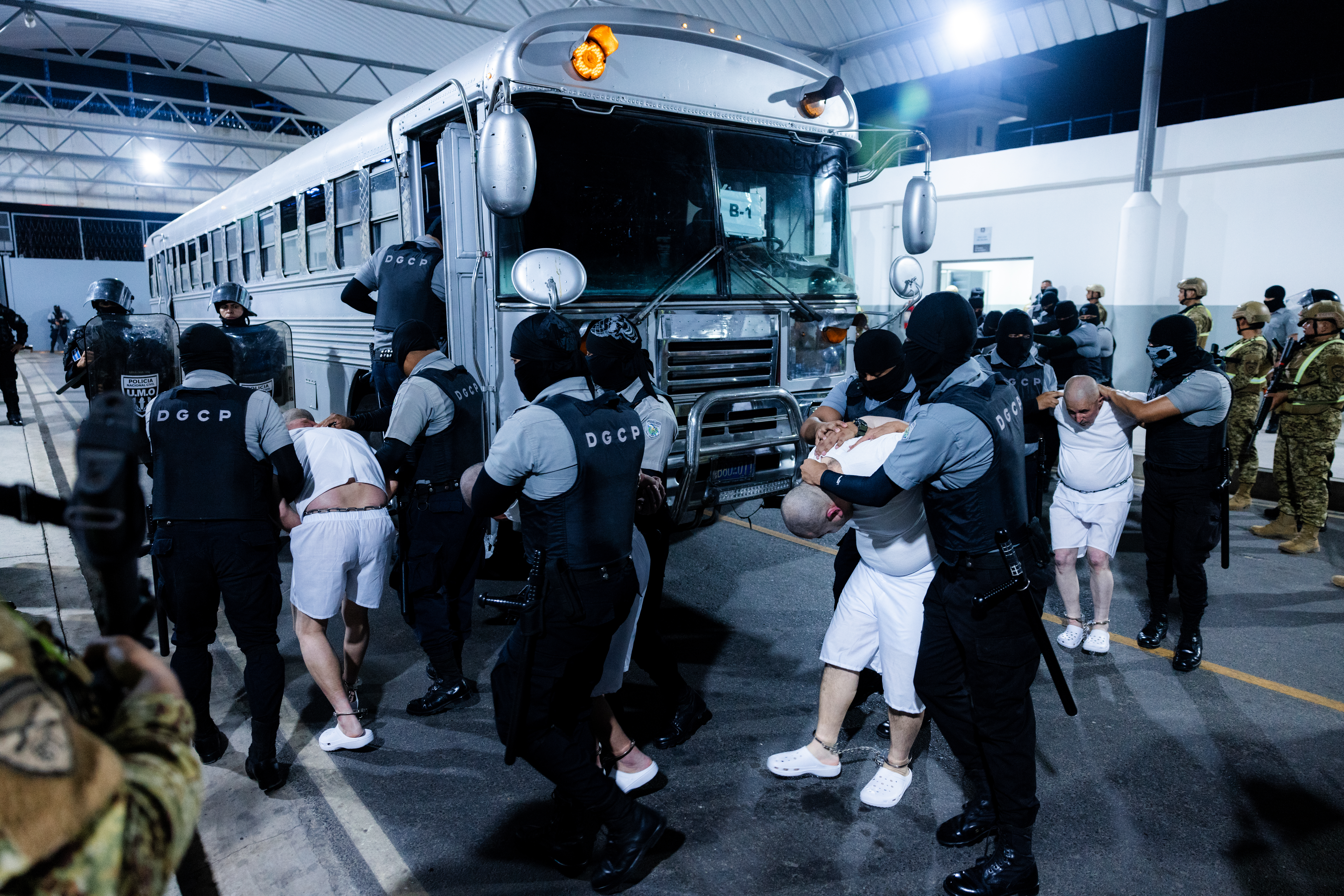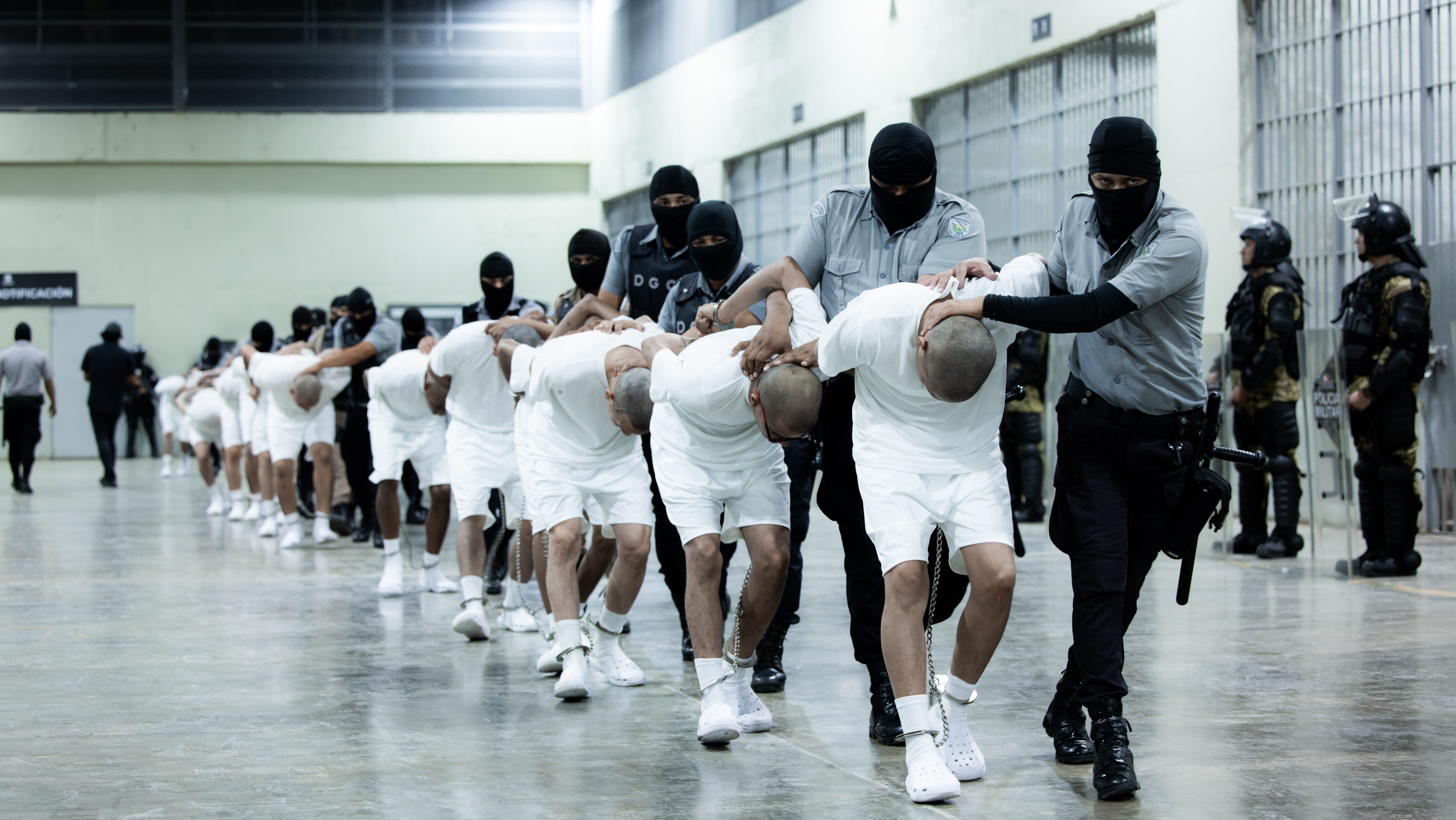The Trump administration is being sued over a so-called immigration scorecard that the plaintiffs say unfairly profiles Venezuelans, including over their tattoos.
A so-called immigration scorecard – aimed at determining a gang affiliation – is the subject of a lawsuit against the Trump administration, alleging unfair profiling against Venezuelan migrants to the U.S.
The lawsuit was filed after 200-or-so Venezuelan migrants were flown to a notorious mega-prison in El Salvador last month by the Trump administration, which had invoked the centuries old Alien Enemies Act.
Stream NBC10 Boston news for free, 24/7, wherever you are.
The migrants were rounded up in the U.S. on suspicion of being members of the Tren de Aragua gang Venezuelan gang.
Some on those flights claim they’ve been wrongfully targeted, including two women who spoke to NBC News and claim they don’t belong to a gang and have no criminal record.
Get updates on what's happening in Boston to your inbox with our News Headlines newsletter.
Court documents show immigration officials judge Venezuelans over the age of 14 on an 81-point scorecard, with eight points being enough to get a person deported. Officials seek out tattoos, including the Michael Jordan logo, an AK-47 riffle, trains, crowns, stars and clocks, among other phrases and symbols.
The American Civil Liberties Union has sued the government over this process, saying, “The unreliability of the factors on the checklist reinforces why it is essential that these individuals are given due process to contest their inclusion in this unlawful process.”
The government backs its intelligence gathering methods: “DHS has thorough intelligence assessments to determine if an individual is a member of one of these vicious gangs… The premise that these individuals are not gang members is based on faulty assumptions.”
For Jonathan Catano, who's dedicated the last 18 years to tattooing all sorts of designs on other people’s bodies, he wishes people would get a chance to justify their ink. He said some people he’s tattooed back in Colombia who have since moved to the U.S. have expressed regret and have tried to cover or remove their ink, concerned they may become a target.
Over the years, the Colombian national has learned which symbols carry controversy.
“Not all who get such tattoos are gang members,” he said.
Leominster tattoo artist Mike Graciale agreed, saying the art form has been misinterpreted his whole life, and that he’s had to become more cognizant of certain symbols that may put him and his clients at risk.
“It’s my job to kind of bring a witness to, ‘Hey, this might not be a good idea. Hey, this is maybe could be mistaken as this,’” Graciale said.
He added, “As permanent as it is for them it’s permanent for us too.”




